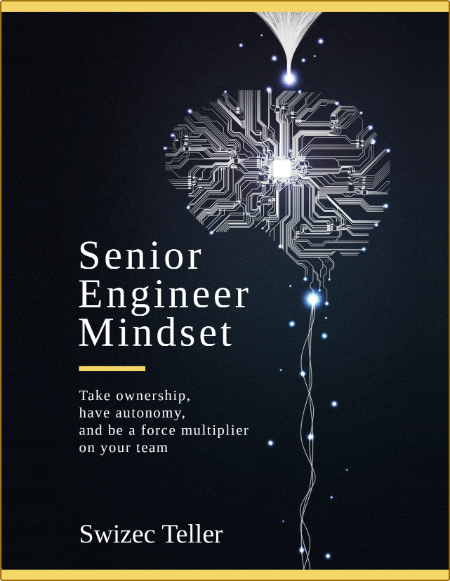0DAYDDL
Active member

pdf, epub, mobi | 137.01 MB | English | Isbn: 978-0996128100 | Author: Edmond Lau | Year: 2015
Description:
The most effective engineers - the ones who have risen to become distinguished engineers and leaders at their companies - can produce 10 times the impact of other engineers, but they're not working 10 times the hours.
They've internalized a mindset that took me years of trial and error to figure out. I'm going to share that mindset with you - along with hundreds of actionable techniques and proven habits - so you can shortcut those years.
Introducing The Effective Engineer - the only book designed specifically for today's software engineers, based on extensive interviews with engineering leaders at top tech companies, and packed with hundreds of techniques to accelerate your career.
For two years, I embarked on a quest seeking an answer to one question:
How do the most effective engineers make their efforts, their teams, and their careers more successful?
I interviewed and collected stories from engineering VPs, directors, managers, and other leaders at today's top software companies: established, household names like Google, Facebook, Twitter, and LinkedIn; rapidly growing mid-sized companies like Dropbox, Square, Box, Airbnb, and Etsy; and startups like Reddit, Stripe, Instagram, and Lyft.
These leaders shared stories about the most valuable insights they've learned and the most common and costly mistakes that they've seen engineers - sometimes themselves - make.
This is just a small sampling of the hard questions I posed to them:
[*] What engineering qualities correlate with future success?
[*] What have you done that has paid off the highest returns?
[*] What separates the most effective engineers you've worked with from everyone else?
[*] What's the most valuable lesson your team has learned in the past year?
[*] What advice do you give to new engineers on your team? Everyone's story is different, but many of the lessons share common themes.
You'll get to hear stories like:
[*] How did Instagram's team of 5 engineers build and support a service that grew to over 40 million users by the time the company was acquired?
[*] How and why did Quora deploy code to production 40 to 50 times per day?
[*] How did the team behind Google Docs become the fastest acquisition to rewrite its software to run on Google's infrastructure?
[*] How does Etsy use continuous experimentation to design features that are guaranteed to increase revenue at launch?
[*] How did Facebook's small infrastructure team effectively operate thousands of database servers?
[*] How did Dropbox go from barely hiring any new engineers to nearly tripling its team size year-over-year? What's more, I've distilled their stories into actionable habits and lessons that you can follow step-by-step to make your career and your team more successful.
The skills used by effective engineers are all learnable.
And I'll teach them to you. With The Effective Engineer , I'll teach you a unifying framework called leverage - the value produced per unit of time invested - that you can use to identify the activities that produce disproportionate results.
Here's a sneak peek at some of the lessons you'll learn. You'll learn how to:
[*] Prioritize the right projects and tasks to increase your impact.
[*] Earn more leeway from your peers and managers on your projects.
[*] Spend less time maintaining and fixing software and more time building and shipping new features.
[*] Produce more accurate software estimates.
[*] Validate your ideas cheaply to reduce wasted work.
[*] Navigate organizational and people-related bottlenecks.
[*] Find the appropriate level of code reviews, testing, abstraction, and technical debt to balance speed and quality.
[*] Shorten your debugging workflow to increase your iteration speed.
[*] Use metrics to quantify your impact and consistently make progress.
Category:Software Design & Engineering, Software Development, Computer Programming Languages
RapidGator
Code:
https://rapidgator.net/file/17b4be5170f42f859a3bcacef6d89b10/
Code:
https://ddownload.com/aj1gxal6uoc1